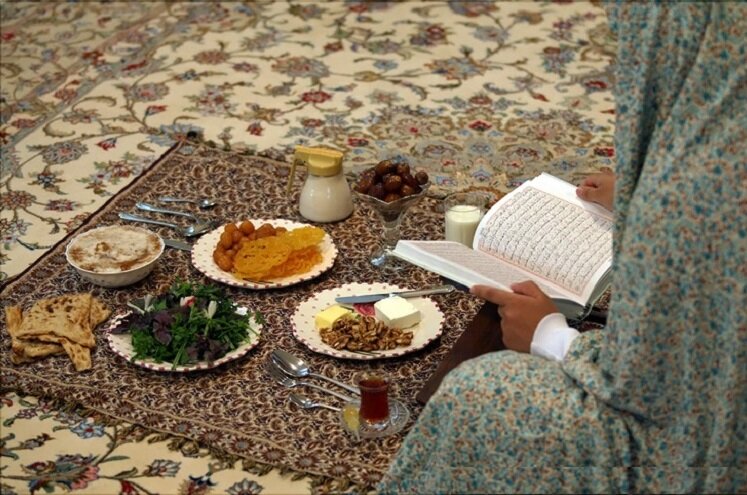Iran jointly nominates Iftar for UNESCO tag

TEHRAN –Iran has submitted a dossier on the Iftar meal to the United Nations Educational, Scientific and Cultural Organization for a possible joint registration between the Islamic Republic, Turkey, Azerbaijan, and Uzbekistan.
During Islam’s holy month of Ramadan, believers abstain from food and drink during daylight hours, and break their fast with the iftar evening meals which vary from simple plates of bread, dates, cheese, and tea to heavy ones.
On March 29, Ali Darabi, the deputy minister of Cultural Heritage, Tourism, and Handicrafts said the dossier of 'Iftar and its related social and cultural traditions', had been sent to the UN body for further consideration.
Darabi noted that the inscription file “has been compiled at the suggestion of Iran and with the cooperation of Turkey, Azerbaijan, and Uzbekistan, and will be presented to the UNESCO Intangible Cultural Heritage committee in 2023.”
Moreover, the official said that the spiritual tradition of pilgrimage to the holy shrine of Imam Reza (AS) along with sustained efforts to safeguard hospitality services for Razavi pilgrims may soon join UNESCO’s listing of cultural treasures.
For Muslims, the ninth month of the lunar Islamic calendar, Ramadan, also known as “Ramazan-e Karim” (benevolent/merciful Ramadan), is a time for, more than ever, practicing humility, patience, simplicity, empathy, and acceptance when things don’t go their way. It’s also a time to make stronger bonds of fellowship.
Muslims observe religious fast from dawn (fajr) to sunset (maghrib) and pray more than usual and with even more intensity to get closer to God. Ramadan is traditionally a time of great hospitality and generosity, so go ahead and accept Ramadan sweets or invitations to feasts, parties, and family gatherings. For Muslims, everything is done ceremoniously and consciously in line with what has been passed down from generation to generation.
Their goal to observe Ramadan rituals is to resist temptation in all forms. The purity of thoughts, intentions, and deeds is underlined while the road to self-discipline, self-control, sacrifice, and compassion and affection is paved by willpower and endurance.
Visiting Iran during Ramadan can be a memorable, first-hand experience for many foreigners. During such a time, however, there are some dos and don’ts you should be mindful of.
As a foreign traveler, you should be respectful of the culture and beliefs of the country you are the guest. Avoid eating in front of Muslims during the month, just eat somewhere quiet, or at least in obvious tourist areas.
Eating, drinking, and smoking in the public are strictly prohibited as they are considered acts of temptation; especially for locals, where failing to observe Ramadan may attract penalties. However, there are exceptions for the ill, pregnant, or physically weak people and even long-distance travelers!
In reverse, during Ramadan, one can eat their heart out from sunset to sunrise. Pretty much every restaurant, food stand, and even household have food ready after dark.
After a long day’s observance of fasting from dawn, Muslim families gather at sunset to break their fast over a meal known as Iftar, which is typically more than just food at the end of a ritualistic day.
During the daytime all restaurants and coffee shops are closed, however, by the sunset, street Iftar meals are ready to grab for those who cannot reach home in time for breaking their fast.
To bring more comfort to the faithful, work schedules in Iran are modified during this month to make the experience of this month as convenient as possible.
This year’s Ramadan begins tomorrow on April 3 and is estimated to end on May 1. Ramadan comes to an end by Eid al-Fitr, a joyful holiday when Muslims celebrate 29 or 30 days of dawn-to-sunset fasting; complemented by lots of traditional food and family get-togethers.
Because of the nature of the lunar calendar system, the dates of Ramadan vary each year and there is always a sort of disagreement among scholars as to when does Ramadan precisely start or come to an end.
By tradition, the new moon crescent which is sighted by the naked eye marks the beginning of a new lunar month but these days Muslims prefer to lean towards astronomical calculations to avoid such confusion.
AFM
